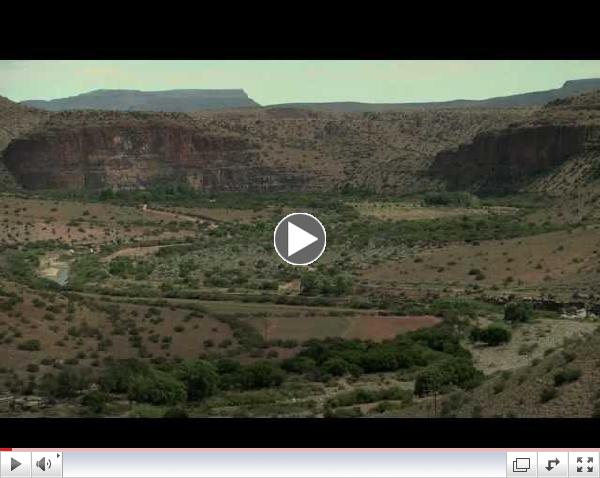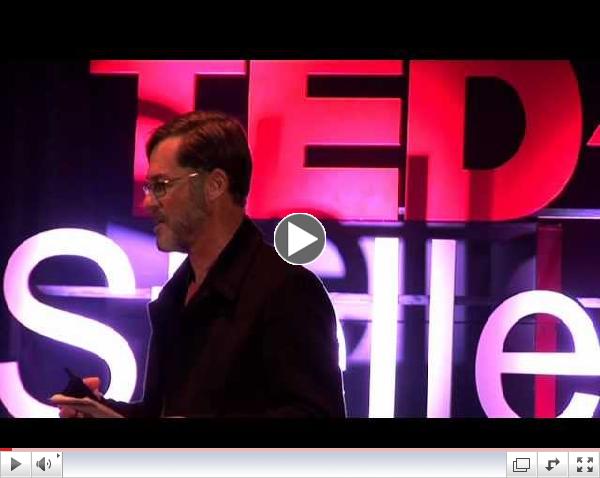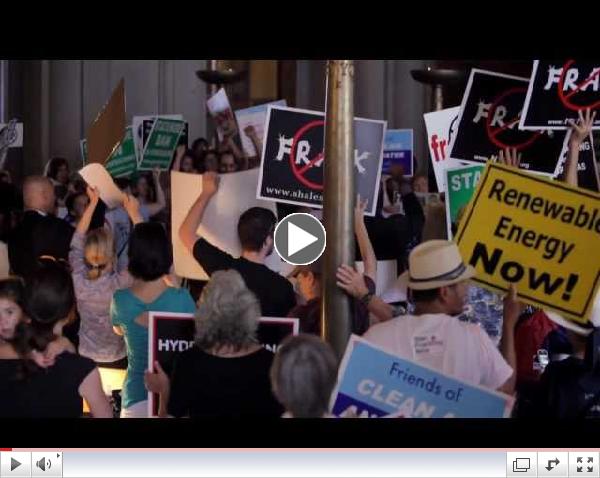|
|
|
P rotecting Communities and Special Places rotecting Communities and Special Places
|
|
e-Newsletter November 22, 2013
|
|
|

 "One thing is for certain: We can have a fossil fuel "One thing is for certain: We can have a fossil fuel
industry with a healthy balance sheet, or we can
have a living planet with a chance of survival -
we can't have both."
~ Jonathan Deal
|
|
|
NAME THAT BREW
WINNER !!!
Congratulations to Sherry Brotzman
for the winning name:
Old Logger's Ale
6 to 8 p.m.
for the official
Tapping Party
at Riepstine's Pub
in Williamsport
Watch for details in next week's newsletter 
|
|
My Name Is
Allegany County
Saturday,
November 23, 2013
The Pajama Factory
Williamsport, PA
|
----------------------------------
Lycoming College
Faculty Art Exhibit
Nov. 21 - Dec. 13
The Art Gallery
in Snowden Library
Exhibit features several faculty artists, including work by Jeremiah Johnson, instructor of printmaking. Influenced by the works of Goya, Johnson's intaglio prints are a testament to the crimes against the environment and its people due to regional gas drilling.
|
|
-----------------------
Pre-release screening!
Groundswell Rising
Dec. 8, 2013
7:00 p.m.
$10 suggested donation
Pocono Community Theater
88 South Cortland St.
East Stroudsburg, PA 18301
Screening to be followed by discussion and Q&A with the director and producers.
Seating is limited; reservations are essential!
Phone: 570.421.6684
|
|
-------------------------
Free Alternative Zero Point Energy Technologies Seminar
Thursday, Dec. 5
6:00 to 9:00 p.m.
Loyalsock State Forest Resource Management Center
6735 Route 220
Dushore, PA
|
 TAKE ACTION!
|
The Delaware Riverkeeper asks you to
Help Keep Frack Waste off our Rivers!
Comment period closes
November 29,
2013
The U.S. Coast Guard is proposing to allow the shipping of shale gas extraction wastewater by barge on the Nation's rivers.
A proposed "policy letter" would allow this waste to be carried by barge in bulk under certain conditions as a hazardous material on navigable waterways throughout the U.S.
|
 IN THE NEWS
|
|
This Week's Scoops
It's nice to know that among the recipients of the latest $3 million Alternate Fuel Incentive Grants handed out, $55,000 went to SWEPI, LP to purchase 10 CNG bi-fuel vehicles. Yes, that's right, we the people of Pennsylvania helped Royal Dutch Shell's subsidiary to purchase natural gas powered vehicles. I guess we should be glad that the purchase will reduce gasoline fuel costs for SWEPI LP by approximately $40,000 a year. Maybe if we're lucky, SWEPI LP will put in a good word for the state with the Marcellus Shale Coalition (MSC) and the MSC members will pitch our way a few more of those infrastructure dollars they spend to help with those crumbling roads and bridges. But then again, it looks like we might have a new transportation bill, one that provides for, yup, we the people of Pennsylvania to pay more to upgrade our transportation infrastructure. Gee, and I thought the oil and gas industry was taking care of our roads and bridges.
|
We welcome your active participation and are in
need of help for special events, publicity, research, and other projects.
Contact us for details.
As a 501(c)(3)
non-profit
organization, RDA
relies on donations
for the important work we do. In order for
RDA to continue its valuable education
and advocacy
outreach in 2013, please consider
a tax-free contribution
to our efforts.
|
|
|
 The Fight for the Karoo The Fight for the Karoo By ANN PINCA
Thousands of miles from the contested drilling rigs of Pennsylvania's Marcellus Shale, another shale struggle takes place in South Africa. Since 2011, a fight has been waged by farmers, native Khoi people, and conservationists to keep shale gas exploration and hydraulic fracturing out of the Karoo, a 150,000 square mile region in the heartland of South Africa. Yet even though it may be far from the forests of Pennsylvania, there is a personal connection between the citizens of the Karoo and the Keystone State.
In July 2011, South African livestock farmers Dougie Stern and Lukie Strydom visited Lycoming County at the invitation of RDA members after they met at an event in Ithaca, NY. The Karoo farmers visited drilling operations in eastern Lycoming County as part of a two-week information gathering tour to the northeastern United States. Accompanying them was South African documentary filmmaker Jolynn Minnaar.
 |
Watch an interview with Jolynn Minnaar - documentary filmmaker; director of "Unearthed", a film about hydraulic fracturing. Says Minnaar, "I went to the United States believing that shale gas really was a panacea for the issues that the world's facing, and I was horribly disappointed."
|
Recently, Minnaar and Stern were in the news in South Africa, when they attended a November 1 meeting hosted by Shell as part of the corporation's intensive outreach campaign to persuade Karoo residents to embrace natural gas exploration and extraction. One of several companies planning to drill in the Karoo, Shell took the lead in attempts to win people over to hydraulic fracturing after discovering surprisingly fierce opposition to the idea.
Much of that opposition was provided by Jonathan Deal, a writer, photographer, and outdoor promoter who lives with his wife Sharon in the Karoo, just a few hours northeast of Cape Town. Deal and his wife Sharon fell in love with the Karoo, purchased property there, and set about sharing their love of nature with others. Deal spent three years researching, photographing, and writing about the Karoo for his book published in 2007, Timeless Karoo.
In 2011, Deal read a news article about Shell's plans for exploratory gas drilling in the Karoo and took action, realizing through his extensive knowledge of the Karoo that shale gas extraction could severely impact the environmentally sensitive and naturally diverse land that he treasured. Investing his time and personal finances into a grass roots effort that eventually became known as Treasure the Karoo Action Group (TKAG), Deal and his group worked tirelessly to inform rural residents in the Karoo about hydraulic fracturing and also developed, with the help of scientific and legal experts, a report calling for a national moratorium on hydraulic fracturing.
 |
For his tireless efforts and personal sacrifices on behalf of the Karoo, Jonathan Deal was named the 2013 Goldman Environmental Prize recipient.
Watch this brief account
of Deal's work in his beloved Karoo.
|
Despite the odds, Deal
and TKAG were successful in their efforts when the African National Congress (ANC), South Africa's ruling government party, called for a national moratorium in April 2011. However, in September of 2012, the ANC reversed their decision and
lifted the moratorium, though at the same time it commissioned studies to seriously examine the impacts of hydraulic fracturing.
Shell continues its efforts to influence the people and government of South Africa, and with familiar terms like game-changer, best practices, environmental responsibility, fair compensation for land, and impacts on just 1% of their allotted area, the fight for the Karoo sounds eerily like it could be in Pennsylvania. Add in the promise of 800,000 jobs, energy security, and a cleaner-burning fuel to power the electricity grid for decades--all delivered by local residents hired by Shell--and the sales pitch similarities are undeniable.
But unlike Pennsylvania, South African residents do not own their mineral rights; ownership of all mineral rights was transferred to the government in 2002. Though, according to Deal, it was not done in anticipation of natural gas exploration, this means that landowners do not have the choice of whether or not to allow drilling on their land, as many Pennsylvanians are able to do. Instead, it is the ANC who will determine if and where drilling will take place, and it is the ANC who will also directly benefit from shale gas production as the owners of the mineral rights.
 | |
Listen to Jonathan Deal's discussion on fossil fuels and climate change at an August 2012 TEDx program in Stellenbosch, South Africa. Says Deal, "Climate change and the fossil fuel
industry ... need a determined enemy,
and I believe we can be that enemy."
|
Also, the Karoo is unlike "water-rich" Pennsylvania, with its forested hills and green valleys. Instead, the Karoo, whose name means "Land of the Great Thirst," is a sweeping semi-arid land. Water is the top concern for
Karoo residents. Shell says that it will bring in water from other sources and will not compete with local communities for fresh water, but farmers in the Karoo worry that the precious water they need for livestock and crops will either disappear or be compromised. Even though it is sparsely populated, the Karoo produces most of South Africa's valuable wool and mohair for export and also provides, fruit, vegetables, meat, olives, wine, and honey to South African cities.
A video produced by Shell places emphasis on safety practices and shows Shell team member Charmaine Vusani assuring a Karoo farmer that plans will be in place for any possible accidents. Perhaps the citizens of Karoo would do well to review the records of SWEPI LP, a subsidiary of Royal Dutch Shell operating in Pennsylvania. According to the PA Department of Environmental Protection, SWEPI LP has tallied 215 violations on 77 wells since 2004, not to mention the infamous June 2012 methane geyser in Union Township, Tioga County.
Asked if Shell's campaign to promote drilling has been successful, Jonathan Deal believes it has only worked "amongst politically connected people and the business men that have been promised incentives."
 | |
"Unearthed: The Fracking Facade"
Watch the documentary film. (And see some familiar faces, too!)
|
With recent government actions appearing to move South Africa closer to allowing hydraulic fracturing, Jonathan Deal and TKAG supporters are not giving up. Promising legal action to appeal any exploratory licenses issued by the government, Deal looks to international reaction as an additional influence on government decisions.
Deal also attended the November 1 Shell meeting, along with Dougie Stern and Jolynn Minnaar. There, Deal questioned Shell representatives about the accuracy of the promised job numbers, while Minnaar asked about groundwater contamination in the United States. But it was Stern who had the last word.
After pointing out the many "half-truths and lies" spoken by the Shell representatives, Stern called on all the farmers and native Khoi people in attendance to join him in walking out of the meeting. They did.
Learn more: follow Jonathan Deal's blog here
|
|
 Keep It Wild Hike: The Haystacks Keep It Wild Hike: The Haystacks | |
A section of the Haystacks.
IMAGE: ANN PINCA
|
Hike with RDA to the Haystacks in the Loyalsock State Forest in Sullivan County. Named for the large rounded rocks in the Loyalsock Creek that resemble piles of hay, Jeff Mitchell, author of Hiking the Endless Mountains, says "The Haystacks hike is probably the most popular one in the Loyalsock State Forest. This hike is accessible, relatively easy, and incredibly beautiful."
Directions: Take US 220 north through Laporte. Continue approximately three miles, then turn left on Mead Road. Continue on Mead Road about 0.2 miles to the parking lot on the right. The 4.6 mile hike begins at the trailhead of the Loyalsock Trail. Estimated hiking time is 2 1/2 to 3 hours.
|
|
 "Marcellus Matters" Workshop Scheduled for "Marcellus Matters" Workshop Scheduled for Sullivan County
A MarcellusByDesign pilot workshop will take place on Wednesday, December 4, in the Sullivan County courtroom at Laporte, from 4:00 p.m. to 7:00 p.m. and will integrate with the county planning commission meeting scheduled for 7:30-9:30 p.m. An article in The Sullivan Review describes the program as a landscape design and planning workshop meant to address the likely outcomes of gas development in Sullivan County.
The workshop comprises two major components:
- Scenic and cultural landscape protection strategies for Sullivan County
- Minimizing the impacts of necessary landscape intrusions
Topics will include:
- Scenic landscape protection strategies for Sullivan County
- Loyalsock Trail wilderness and scenic viewshed preservation
- A Ridgeline Protection Ordinance for Sullivan County
- Aesthetic responses to future disturbances in the scenery of Sullivan County
- Minimizing the impacts of necessary landscape intrusions
- Seeking habitat opportunities in the implementation of pipeline right-of-ways
- Improving the hydrological performance of pipeline and roadway cuts in Sullivan County
- Minimizing the visual impacts of unavoidable energy infrastructure in the landscape
- Historical and future land use change and its implications for streamflow and flooding in Sullivan County
- Alternate futures for the human landscape of Sullivan County
- Future food and water security for a Sullivan County watershed
- A stable energy future for Sullivan County
- How has Dushore changed, and how will it change again?
- Gasland III: Case study of a tourism and recreation resort in the Marcellus landscape
Information just released by the United States Geological Survey (USGS) measured land disturbance in four Pennsylvania counties, including Sullivan County. Using geospatial data and high resolution aerial imagery from 2004-2010, the USGS is documenting land disturbance to help determine potential consequences for ecosystems and wildlife.
 |
Gathering pipeline construction in Sullivan County. IMAGE: ANN PINCA
|
The landscape design and planning workshop is part of a larger grant project,"Marcellus Matters: Engaging Adults in Science and Energy," which according to its web site "aims to enhance the public's understanding of science, engineering, and energy through community-based activities that foster constructive dialogue, engage locals in science and research, and help residents become "Marcellus Community Scientists" who can transfer knowledge to their respective communities."
The project is funded by a $2.5 million National Science Foundation (NSF) education program grant that was awarded to an interdisciplinary group of Penn State researchers.
Michael Arthur, professor of geosciences and co-director of the Marcellus Center for Outreach and Research (MCOR), is the principal investigator.
Another program related to this grant, the "Marcellus Community-Based Performance program," recently took place in Sullivan County. The goal of that program is to educate Pennsylvania residents through the use of interactive theater.
The December 5 workshop is open to the public; attendance and participation are encouraged.
|
|
RDA Newsletter 
Ann Pinca, managing editor
Ted Stroter, RDA Board of Directors editor
Ralph Kisberg, contributing editor
Robbie Cross, President - RDA Board of Directors
Jenni Slotterback, Secretary - RDA Board of Directors
Barb Jarmoska, Treasurer - RDA Board of Directors
Mark Szybist - RDA Board of Directors
Roscoe McCloskey - RDA Board of Directors Jim Slotterback - RDA Board of Directors
This weekly e-letter is written and designed by the RDA consultants and Board of Directors and sent to RDA members/subscribers. Every effort is made to assure complete accuracy in each issue. This publication and the information contained herein is copyrighted by RDA and Ann Pinca and may not be reproduced without permission.
All rights reserved. Readers are invited to forward this newsletter in its entirety to broaden the scope of its outreach. Readers are also invited to comment to the managing editor regarding contents and to submit articles to be considered for publication in a future issue.
Please note: The RDA newsletter includes reporting on a variety of events and activities, which do not necessarily reflect the philosophy of the organization. RDA practices only non-violent action in voicing the organization's beliefs and concerns.
|
|
|
|
Donations may also be sent by mail to: Responsible Drilling Alliance, P.O. Box 502, Williamsport, PA 17703
Thank you for your support!
|
|
|
|
|
|
|